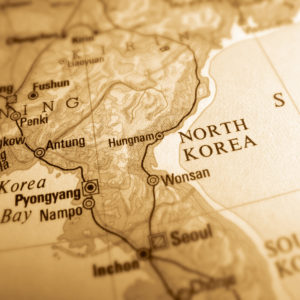SEOUL — An attempt by a Korean think tank to order a leading American university to do its bidding has provoked a storm of criticism in Washington.
The immediate issue surrounds a standoff between the influential Korea Institute for International Economic Policy and the U.S. Korea Institute, affiliated with the School of Advanced International Studies at Johns Hopkins University.
Robert Gallucci, chairman of USKI, rejected outright a demand by KIEP to dismiss the institute director, Jae H. Ku, and the assistant director, Jenny Town. KIEP, which has been providing nearly $2 million a year to the institute, is stopping all funding next month.
Gallucci, a former senior diplomat who negotiated the 1994 Geneva framework agreement under which North Korea shut down its nuclear reactor for eight years, blasted KIEP for “meddling” in the affairs of USKI.
The controversy raised questions about the future of 38 North, an adjunct of USKI. 38 North founder Joel Wit, former U.S. diplomat with broad experience on North Korean issues, including visits to the site of the North’s reactor, said 38 North would keep going with funding from elsewhere, but he’s sure to have difficulty supporting highly publicized analyses of North Korea’s nuclear program, often accompanied by revealing satellite photographs, by experts such as Joseph Bermudez Jr., described by 38 North as “an internationally recognized analyst, author and lecturer” on North Korean defense and intelligence issues and third-world ballistic missile development.”
KIEP responded that USKI had not provided proper accounting or transparency on what it was doing with its donations. The argument centered on whether the KIEP funding was a subsidy or an unrestricted gift that USKI could use as it wished.
Gallucci maintained, however, that KIEP simply did not like the conservative outlook of the institute director, Jae H. Ku, who had a distinguished record as a scholar but was often critical of Korea’s evolution as a democracy. Ku, a Harvard graduate, was sharply critical of North Korea while serving as director of the Human Rights in North Korea project at Freedom House in New York before his appointment 11 years ago as director of USKI at Johns Hopkins, from which he received his doctorate.
Just what KIEP had against Jenny Town is a bit of a mystery. Like Gallucci and Joel Wit, Town is seen as dovish, an advocate of reconciliation and dialogue with North Korea. She’s also a frequent visitor to South Korea, where she has a broad network of friends and contacts.
The controversy raises two issues that many academicians in the U.S. find troubling. Overall, the concern is that foreign governments often use donations to universities in a campaign to gain leverage and influence over the faculty, the curriculum and areas of research.
China in particular has been accused of a concerted effort to subvert and undermine American institutions by supporting programs in Chinese studies, including language training. China has been spreading its culture, and politics, via Confucius Institutes that have invaded hundreds of American campuses, approved by administrators who love to receive the funding from Chinese coffers rather than their own endowment funds.
The University of Chicago dropped its Confucius Institute after professors complained the university was “outsourcing” Chinese studies to Chinese propagandists. A number of institutions have rejected Chinese funding though many gladly take whatever they can get.
The Korean case is a little different. The question of funding for the USKI arose in debates in the National Assembly in Seoul where assembly members asked for clear accounting. They were not pleased by brief statements from USKI – and were not impressed by the many reports put out by 38 North and others at USKI as adequate responses to their questions.
U.S. scholars, however, asked whether the bureaucrats in Seoul understood the meaning of “academic freedom.” They rejected comparisons between funding for USKI and the Korea Economic Institute, also in Washington. The difference, say the Americans, is that KEI is a Korean government organization. As such KEI would automatically be responsive to requests for detailed accounting whereas USKI is an academic affiliate of an independent university.
Gallucci called the KIEP demands for the resignations of Ku and Town an “intervention on academic freedom” while Ku said he believed that the Korean government objected to a former associate of Lee Myung-bak, a former Korean president now in jail facing corruption charges.
Korean government officials denied anything to do with KIEP’s decision to cut funding for USKI. KIEP cited “lack of transparency in selecting visiting scholars and interns” as well as “lax reporting on accounts.”

